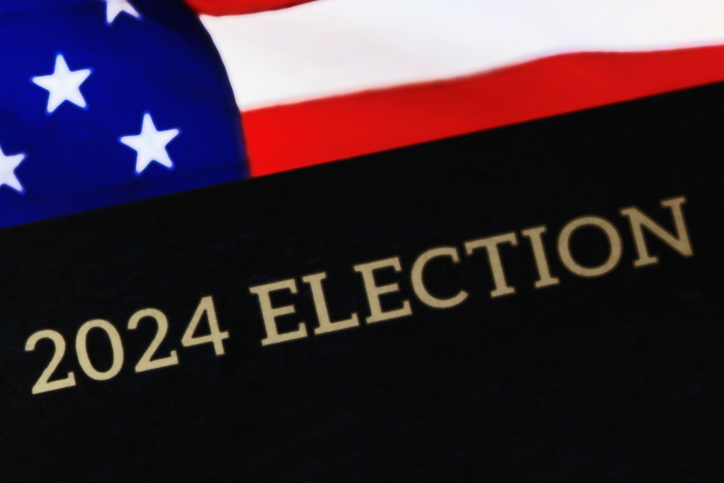Politics may overshadow the issues in the November presidential election, but health care is on the minds of most voters. Twila Brase, president, and co-founder of the Citizens’ Council for Health Freedom, spoke with Health Care NewsManaging Editor AnneMarie Schieber about the crucial health care issues for a new administration and what reform could look like under the prevailing candidate.
Health Care News: As we speak, Vice President Kamala Harris appears to be the Democratic Party nominee. If she wins, what impact could this have on the biggest complaints in health care: unaffordability, fewer choices, and longer wait times?
Brase: Americans don’t realize we are moving in lockstep to socialized medicine. All you need to do is look at the fact of longer wait times, increasing requirements for prior authorizations from insurance companies, and limiting doctor choice and treatment. This is now being run in the U.S. through health plans. If we are looking at Harris, and what she wanted during her first run (for president in 2020), we are likely looking at Medicare for All; but with health plans that operate like public utilities. The idea is something like Medicare Advantage for All, where private health plans and corporations will be used to ration care.
This is where Democrats and Republicans have taken health care coverage over the past 30-some years, moving away from real insurance—major medical indemnity insurance; something affordable and only for insurable events.
Health Care News: On the other hand, leaving aside Robert F. Kennedy Jr. on an independent ticket, we have Donald Trump, whose track record on health care reform is known. The wild card might be his VP choice, J.D. Vance, and the power he could have. Vance is new to politics and seems to have the backing of party elites. He has a Yale law degree and did work as a venture capitalist. Should this be a concern for voters looking for meaningful reform?
Brase: When I look at Vance, who seems to have everything but health care on his senate website, you have to Google it to find what he has said on the topic. I don’t think we really know what he will do. We know he doesn’t like Medicare for illegal immigrants; he doesn’t like lockdowns, masks, or vaccine mandates; but he has much concern about Medicare and Social Security. He once commented that the Republicans are the party of the elderly, and because of that Medicare is untouchable in terms of making it more fiscally sound.
Now, from my organization’s perspective, we got an executive order in 2019 from President Trump allowing seniors to opt out of Medicare voluntarily and not lose their Social Security benefits. The two were tied together unlawfully by the Clinton administration. COVID derailed the decoupling, and Biden rescinded it altogether. We’re hopeful this will happen again and quickly. This might open the door to promoting alternatives like cheaper indemnity plans, and Vance would be open to that because it could be the solution to putting Medicare on a better fiscal footing.
Health Care News: Trump did a lot of good things in the interest of health reform—removing barriers to short-term health insurance and association health plans; allowing states to have better control over Medicaid; and expanding access to generic drugs. Some things were not so good, such as putting too much trust in Fauci, Birx, and the CDC on COVID. Can we expect more regulatory reform and better accountability from our health care agencies?
Brase: I’m encouraged by his last executive order, which was supposed to go into effect in January 2021, and would have created a Schedule F for some federal employees. Schedule F would have put many bureaucrats on the chopping block, able to be fired in an instant, and that indicated his seriousness about reining in the deep state. It was planned for his first day in office had he been reelected, so this is why I think so many in government are worried about another Trump presidency.
Health Care News: Patient privacy has been an issue you’ve long championed, notably with your book, Big Brother in the Exam Room. Do you find it any accident that HIPAA (the Health Insurance Portability and Accountability Act), which we assume protects patient privacy, is now being weaponized, as in the case of the doctor who blew the whistle on Texas Children’s Hospital in Houston for performing trans procedures on children?
Brase: So many people don’t understand what HIPAA is, or the power of the bureaucracies and corporations that are allowed to do all sorts of things with data when they want to. HIPAA was a deliberate deception to get people to think it protects privacy when it doesn’t. It is no accident that this doctor is now being accused of violating the privacy of patient records, but it is all right for them to pass out these records to others. HIPAA is all about an agenda and access to data.
It is unconstitutional that the government can get your personal medical information without your consent. One thing a new administration could do is write a rule requiring expressed consent.
Additionally, a new administration should allow hospitalized patients the right to be seen and treated by their private physician. Hospitals are tax-funded, and they have started restricting care to their own hospitalists. Hospitals are there for the benefit of the public. We need to protect independence in health care. Medicine has been taken over by the business of health care.
